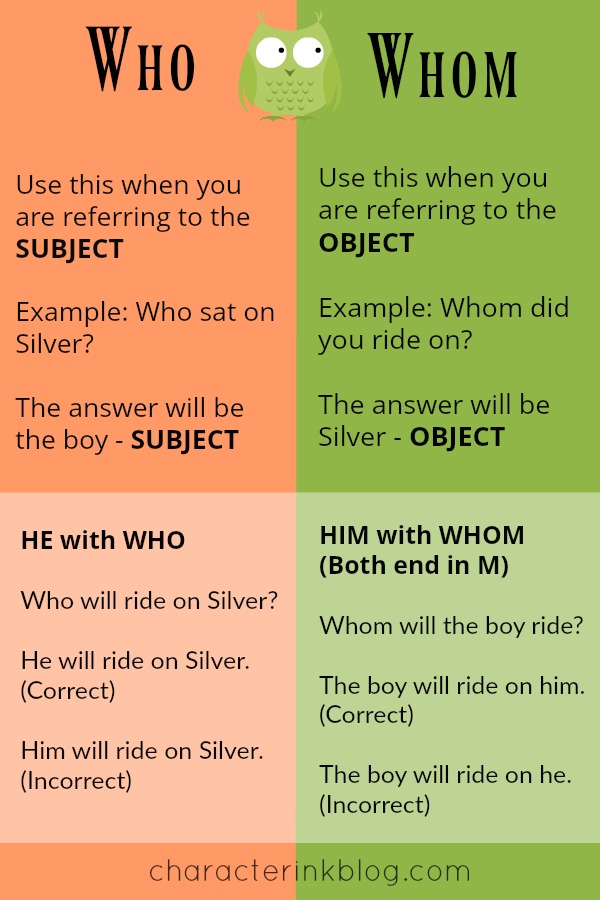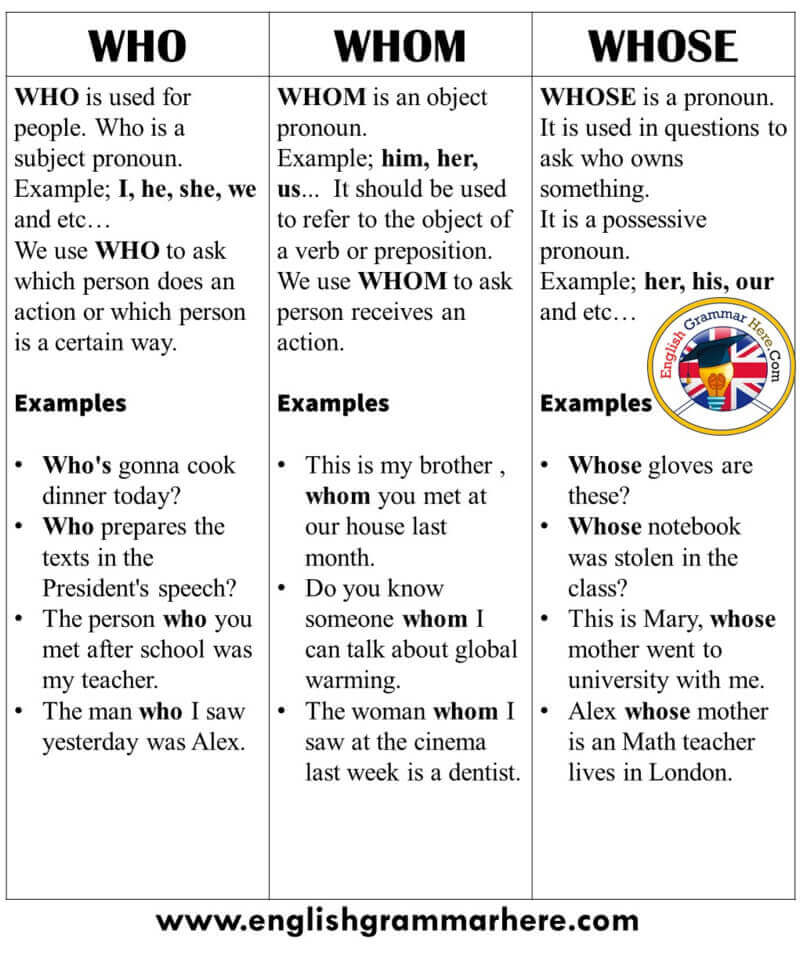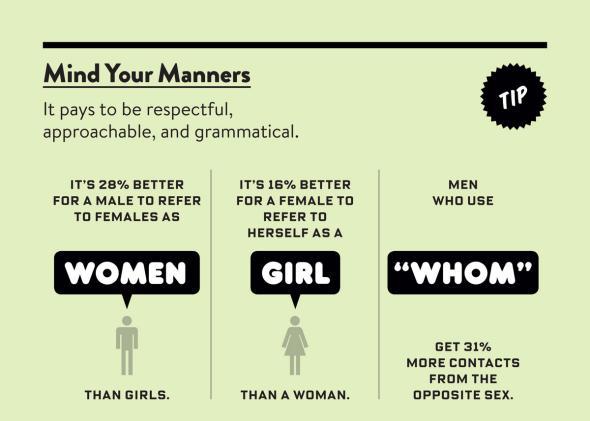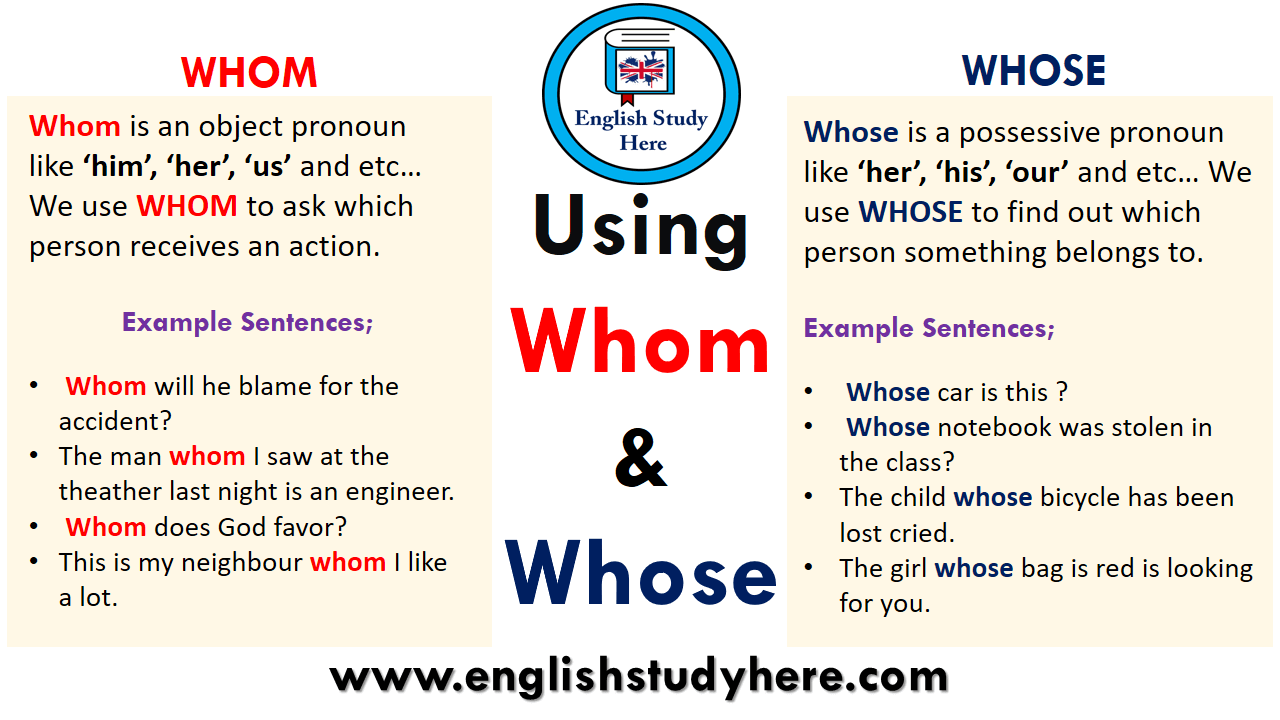There are moments in life where you might feel as though you are not satisfied with a situation. We cant think of many good reasons to use To Whom It May Concern in an email or letter.

Whom Or Who Which Is The Right One To Use And When
1

Who Or Whom When To Use Which Editor S Manual
My aunt with whom I traveled to Europe turned eighty.

Use of whom. How do you decide to use who or whom. If you can replace the word with her him or them for example use whom Youll know when to use whom if the pronoun is used in the objective case or action is being done to the pronoun. Read on to learn this essential grammar lesson.
If that sounds absurd now you have a taste first-hand of what its like for a recruiter or hiring manager to see the words To Whom It May Concern at the top of your cover letter. If you can replace the word with he or she then you should use whoHowever if you can replace it with him or her use whomLets look at some examples and do a who vs whom quiz. Before you use To Whom It May Concern look at alternative letter greetings you can use.
And I hope that that bland overripe To Whom It May Concern-y taste has sufficiently convinced you to vow never to use the phrase again at least when it comes to your current and future job applications. Be Careful About Capitalization. The meaning of whom is used as an interrogative or relativeused as object of a verb or a preceding preposition or less frequently as the object of a following preposition though now often considered stilted especially as an interrogative and especially in oral useoccasionally used as predicate nominative with a copulative verb or as subject of a verb especially in the vicinity of a.
The person from whom I got my car lied about the mileage. The twoas youll recall from English classare related and may seem interchangeable. Voicing a concern in a formal letter is an excellent way for you to do it.
Who and whom and thousands of other language arts skills. Whom should be used to refer to the object of a verb or preposition. Should you use To Whom It May Concern.
Put simply use whomwhich is a pronounwhen it is the object of a sentence. Who is confused by who and whom. A woman whom I think is a genius.
Therefore whom is correct. Who whom whose which and that and thousands of other language arts skills. It is a very formal salutation that is used while writing business letters when the name of the recipient is not known.
Business letter format To Whom It May Concern. When to Use To Whom It May Concern Here are some example of when it is appropriate to use To Whom It May Concern To lodge a formal complaint. Fake Influenza Medicine World Health Organization Effectiveness Infection Effect.
The correct use of who and whom in questions and statements may seem like a lost battle still fought only by punctilious English teachers. An employee shall not use his public office for his own private gain for the endorsement of any product service or enterprise or for the private gain of friends relatives or persons with whom the employee is affiliated in a nongovernmental capacity including nonprofit organizations of which the employee is an officer or member and persons with whom the employee has or seeks employment. If you can find a contact person your letter or email will more likely be read and acknowledged.
The entire phrase is capitalized and followed by a colon. Most careful speakers will use to whom in that context. To use Facebook create an account add a profile image and fill out your profile with information about your interests hobbies education job and so on.
Find a Contact Person. For starters the phrase is old-fashioned and stuffy. You wouldnt say Im doing the project with he you would say Im doing the project with him So its obvious that whom is the pronoun you would use here not who.
And recognized Henry of Luxemburg whom his representatives crowned emperor at the Lateran in 1312. The following is a mini-tutorial on the uses of who whom and whose If you already know how to use these words you can skip the explanation and go directly to the exercises. To recap you should use the words whom and whomever on the occasions when you need an objective pronoun.
Whom is the objective case of who which mean it is used when who is the on the receiving end of a verb. Those sentences may sound a bit old fashioned but they follow the rules of proper grammar. When in doubt try this simple trick.
This rule is compromised by an odd infatuation people have with whomand not for good reasons. At its worst the use of whom becomes a form of one-upmanship some employ to appear sophisticated. Heres a quick and easy trick to be sure whom is the correct pronoun to use.
Replace whom with him or her. How to use who and whom correctly. But there are a few compelling reasons not to.
You can remember when to use whowhom by substituting hehim in the sentence. You should use whom to refer to the object of a verb or a preposition. To Whom It May Concern Think about this phrase as a replacement for someones name.
Improve your language arts knowledge with free questions in Use relative pronouns. The most common method is to use capital letters for the first letter of every word like this. He refused to use his full influence in favour of the candidacy of Charles of Valois brother of Philip IV lest France became too powerful.
However using who and whom correctly can come in handy in formal writing and it will make you. If you can replace the word with he or she use whoIf you can replace it with him or her use whom. If the sentence still makes sentence and is grammatically correct then you know whom is the correct choice.
But are they really. The answer is simple. However because it is a relative pronoun there are numerous tricky examples about when to use who or whom.
The following is an example of the pseudo-sophisticated whom. You would capitalize each first letter in a persons name because it is a proper noun and it is polite and professional to use capitalization when addressing someone. Whom should be used to refer to the object of a verb or preposition.
How and When to Use Whom. Next use the search bar to enter the names of people you know and click Add Friend when their profiles pop up in the results. Who should be used to refer to the subject of a sentence.
Who whom and whose are common and important English words yet they are often mixed up or misunderstood in speech and writingEven experienced academics may have difficulty deciding how to use these words especially when it comes to the difference between who and whomHowever once you get the knack of it deciding how to use who whose and whom can be quite easy. Improve your language arts knowledge with free questions in Use relative pronouns. Use a colon after To Whom It May Concern instead of a comma and finally add a double space or space before beginning the letter.

How To Use Who Whom Whose In English English Grammar Here
Whom

How To Use Who And Whom 6 Steps With Pictures Wikihow

Who Vs Whom Lawless English
Which Is Correct To Who Or To Whom Quora

Whom Men Who Use This Pronoun In Online Dating Ads Get More Contacts From Opposite Sex Respondents

Using Whom And Whose English Study Here

Learn When To Use Who Whom With Language Lady Character Ink
